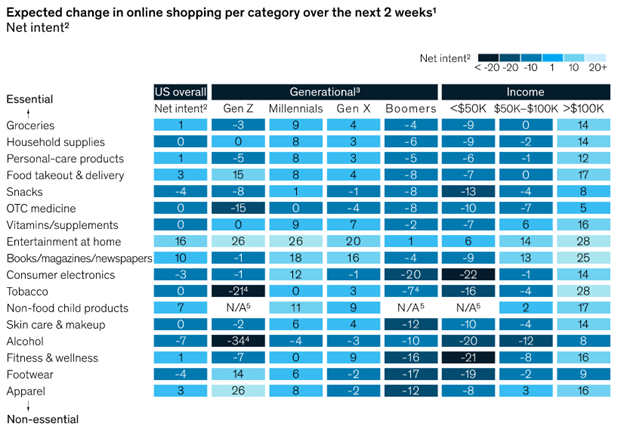It goes without saying that COVID-19 has fundamentally changed every aspect of our lives. Generation Z, those born roughly between the years of 1996 and 2012, are understandably changing the way they approach shopping and retail during the pandemic as well. They, along with everyone else, have begun to favor online shopping at even higher levels since the onset of the pandemic, though they have broken off with other generations as to what they are actually buying. This shift by Gen Z is having an enormous impact on brands and how they interact with the youngest generation.
Because of pandemic-related health concerns, consumers have shifted online to do their shopping. According to the U.S. Census Bureau, online sales rose 32% in Q2 of 2020, totaling to $211.5 billion in sales. McKinsey notes that e-commerce has seen more than 10% growth across all of its categories and many consumers have reported that they will continue to shop online even after physical stores reopen.
Though everyone has shifted to online shopping, different generations have distinct priorities in what they’re shopping for. According to McKinsey, millennials and high-income earners do the most online shopping, spending more on both essentials and nonessentials than other groups. Gen Z, in contrast, has concentrated their shift online to specific categories: food takeout and delivery, clothing and footwear, and at-home entertainment.
Gen Z’s relationship with brands is also shifting due to the pandemic. Their social media usage has, understandably, risen in the past months and brands are becoming increasingly successful when engaging with Gen Z through these platforms. According to the National Retail Federation, “72% of Gen Z college students say they are more likely to buy from a brand they follow on social channels.” Importantly though, Gen Z uses these social media channels to browse, not buy; only 26%, according to NRF, actually make purchases through social media, they mostly use it for research or inspiration. So, though they are more likely to buy from brands they follow, the ultimate purchase might not come from that brand.
About AKCEL Partners
The AKCEL Partners sales consultant firm was founded by three executives with strong bonds throughout many branded and retail categories. AKCEL Partners offers a unique business proposition from other sales consultant firms. The AKCEL sales consultant firm tailors its account team and market plans specifically to each client’s needs. Unlike other sales consultant firms, AKCEL Partners acquires sales consultant talent to fit each job, securing experienced professionals who can get immediate access to decision makers at the highest levels. To learn more, go to www.AKCELPartners.com.



